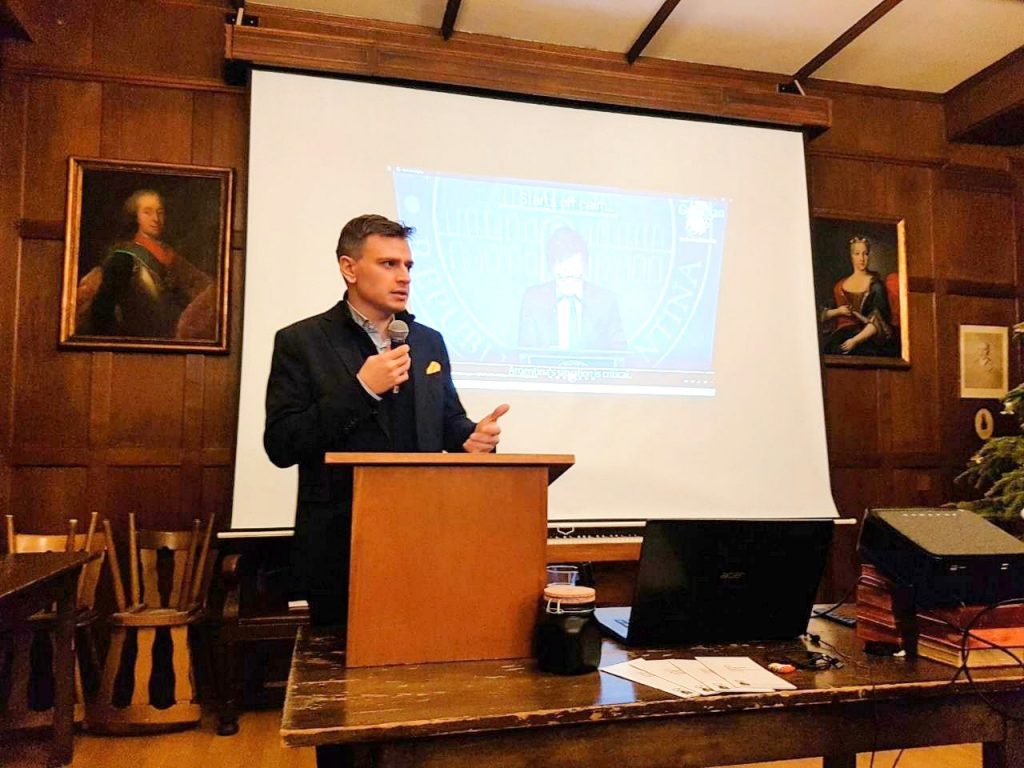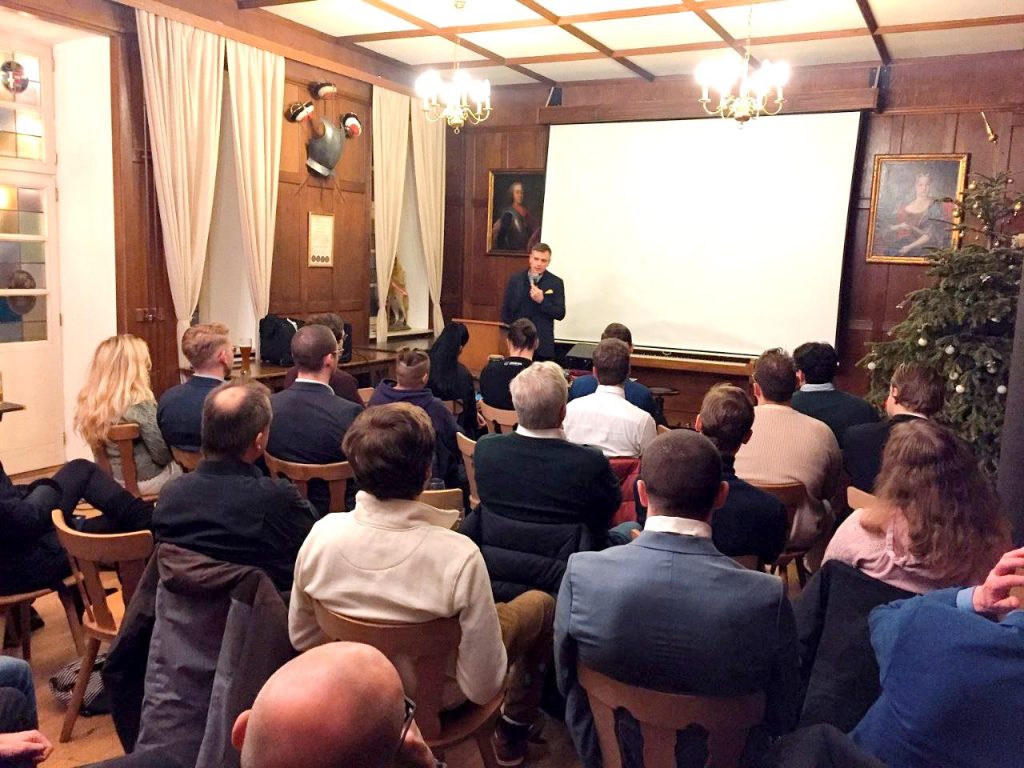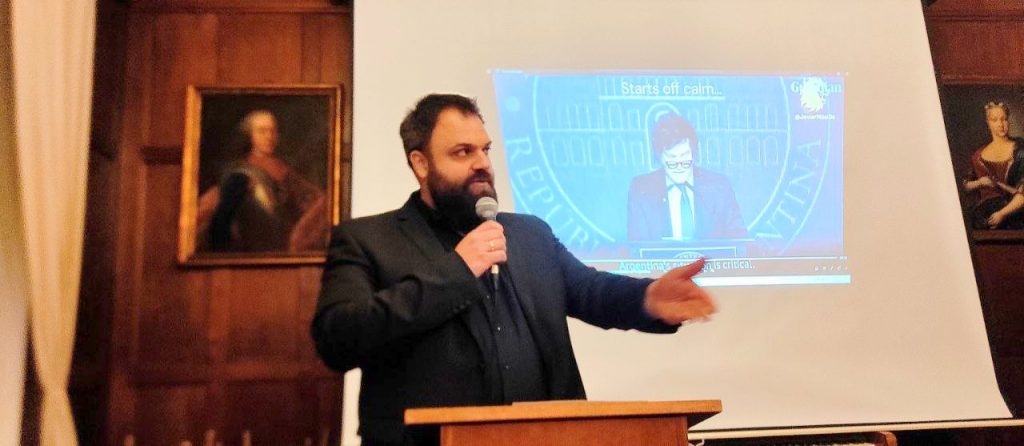On January 10, 2024, the Hayek-Club Munich held an evening lecture on the topic “Classical liberalism as a state ideology? Prospects for the presidency of Javier Milei in Argentina”. Yuri Kofner, economist from the MIWI Institute, spoke to a largely young audience in the impressive setting of the Stauffia fraternity. Florian Handwerker, head of the Hayek Club Munich, moderated the event.
In his lecture, Kofner outlined the central ideas of Javier Milei, the first libertarian president of Argentina and thus the first libertarian head of state in general. However, the anarcho-capitalist Milei was not “right-wing” in the European sense. His fight against (cultural) Marxists was not based on conservative values such as family, culture and religion, but on liberal convictions for the right to freedom, life and property.
Kofner drew parallels between Milei’s agenda and Stalin’s concept of “socialism in a single state”. Similar to Stalin’s argument against Trotsky’s idea of a world revolution, Milei is forced to establish a libertarian society within and with the help of a state – a concept that is directed against the assumption that libertarianism can only flourish beyond the state.
The lecture highlighted the historical foundations of prosperity in Argentina until 1913, when liberal principles such as trade liberalization, the gold standard and currency competition made the country one of the ten richest in the world. In contrast, the current economic misery was attributed to state interventionism, a sprawling welfare state and a massive expansion of the money supply.
Kofner described Milei’s reform agenda as “libertarian shock therapy”, which envisages a drastic reduction in the state apparatus, government spending and taxes. Over 300,000 laws were abolished by presidential decree, including liberalizations in rental and labour law. But despite these measures, Milei is fighting against the concentrated power of the state administrative apparatus, the trade unions, the socialists and the media, and he still holds a minority in the national parliament.
The crowning glory of Milei’s plan will be the abolition of the central bank and the official dollarization of the economy. This step can be seen as the legalization of the unofficial status quo and is intended to prevent the political class from abusing the monetary printing press. Kofner criticized the fact that this would leave Buenos Aires at the mercy of the FED and the American fiat currency system, but also hoped that this would only be an intermediate step on the way to Hayek’s vision of free competition between currencies.
An interesting aspect of the lecture was Kofner’s comparison of Milei’s program with Dmitrios Kisoudis’ concept of the “Ordnungsstaat”. Milei’s defense of “freedom, life and property” against potential street protests and the “deep state” was viewed through the prism of Carl Schmitt’s reflections on sovereignty and politics.
Captivating was the analysis of Milei’s eccentric manner and rhetoric, which Kofner described as an application of Murray Rothbard’s instructions on “right-wing populism”. In a world where progressive social democrats form the ruling elite, libertarian and populist ideas are to be presented as a counter-revolutionary force from the bottom up. Only in this way can the turnaround for liberty succeed.
The report concluded by emphasizing Milei’s election victory, which highlighted two important milestones: voters appreciate honesty and accept the need for tough reforms, and libertarian ideas, when presented properly, can also inspire the masses. As a result, Milei received slightly more votes from the working class than his socialist rival.



